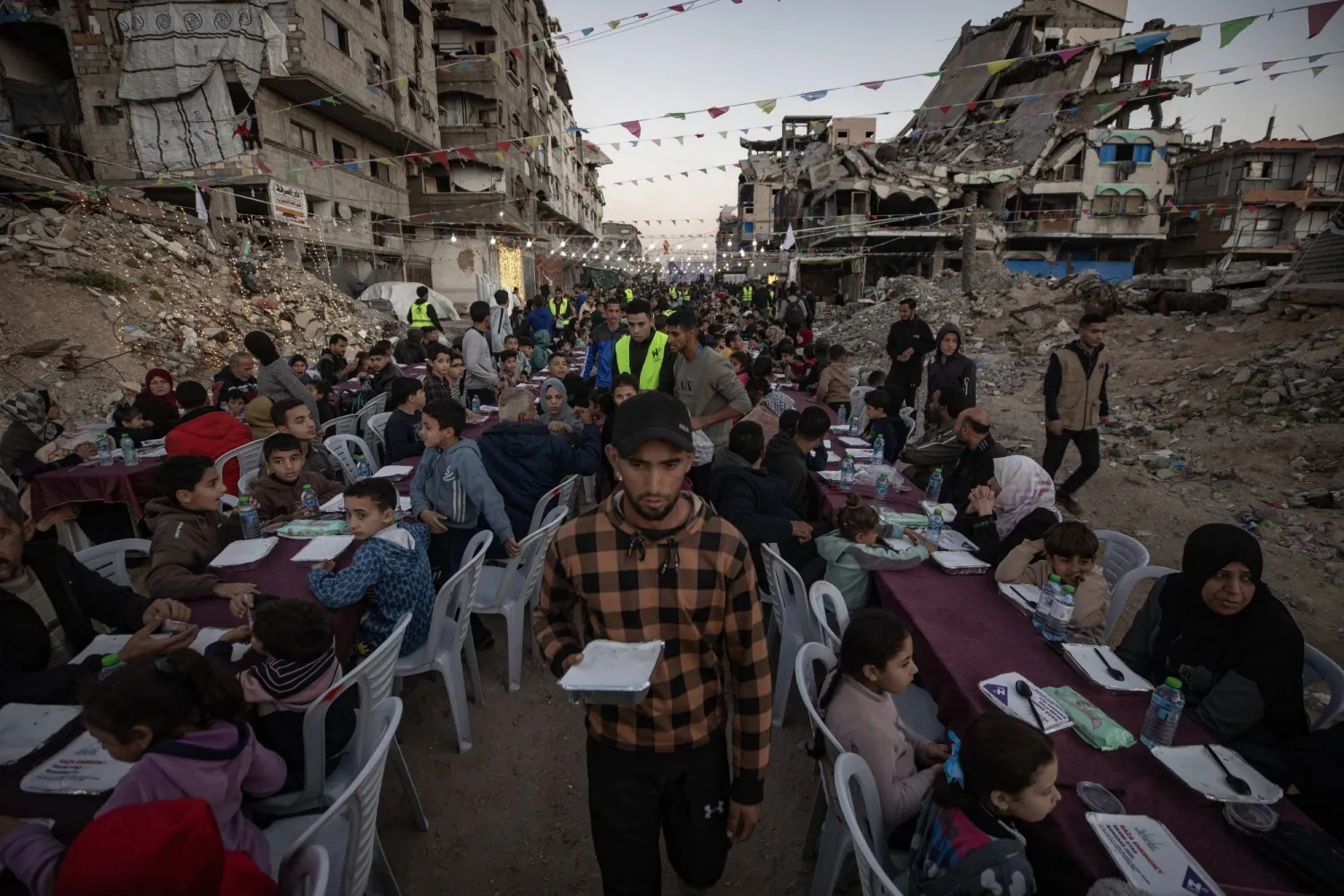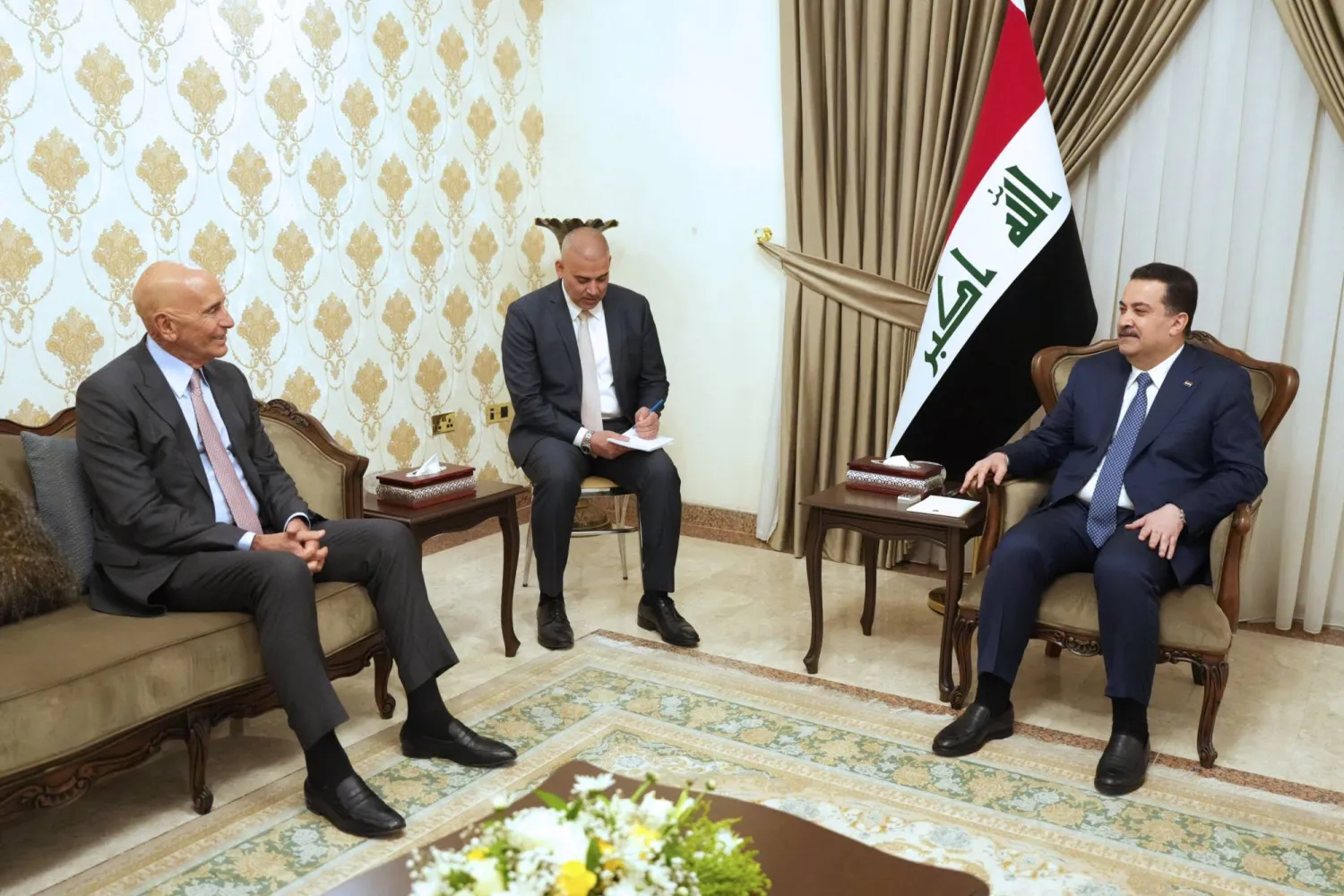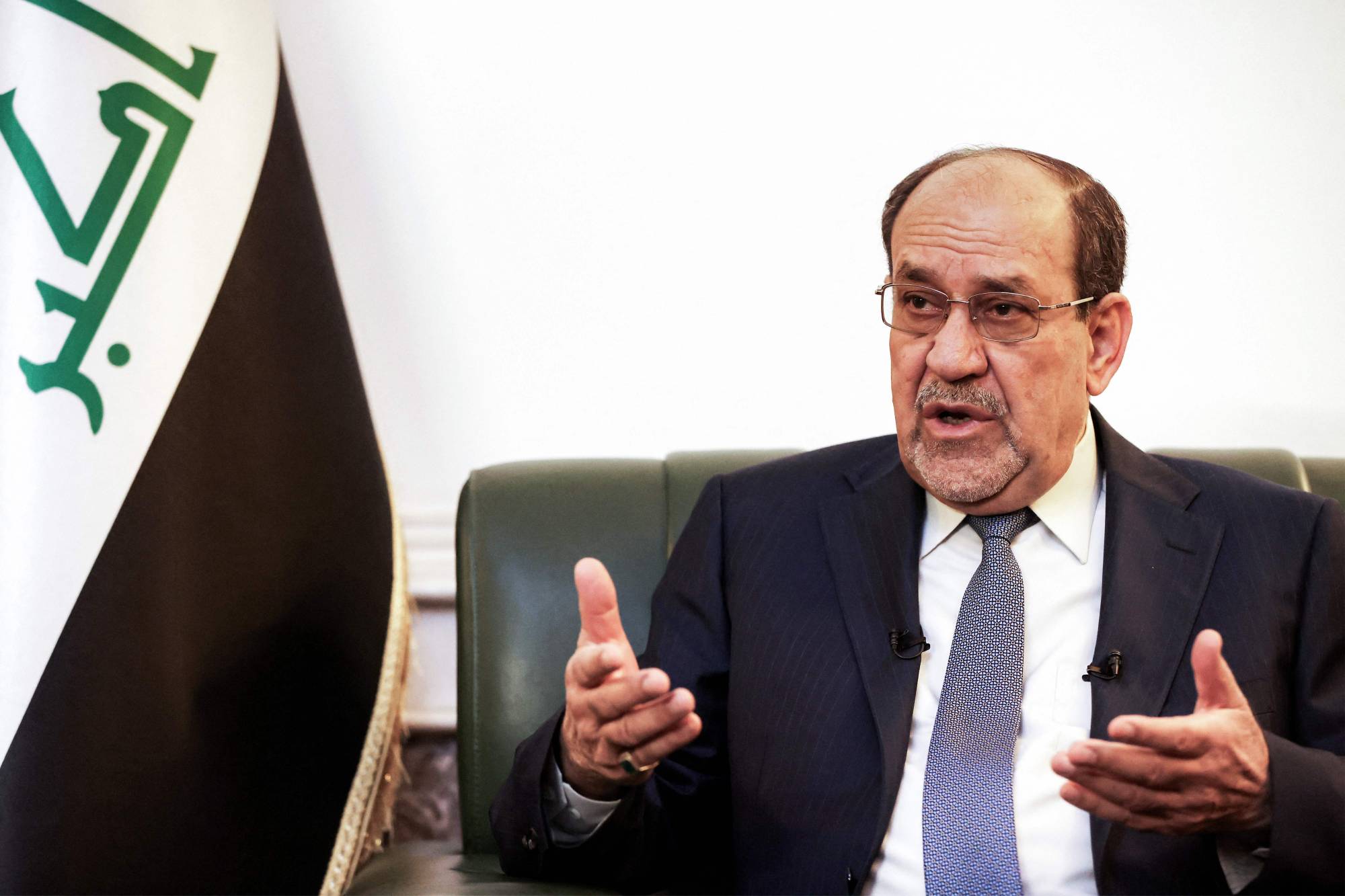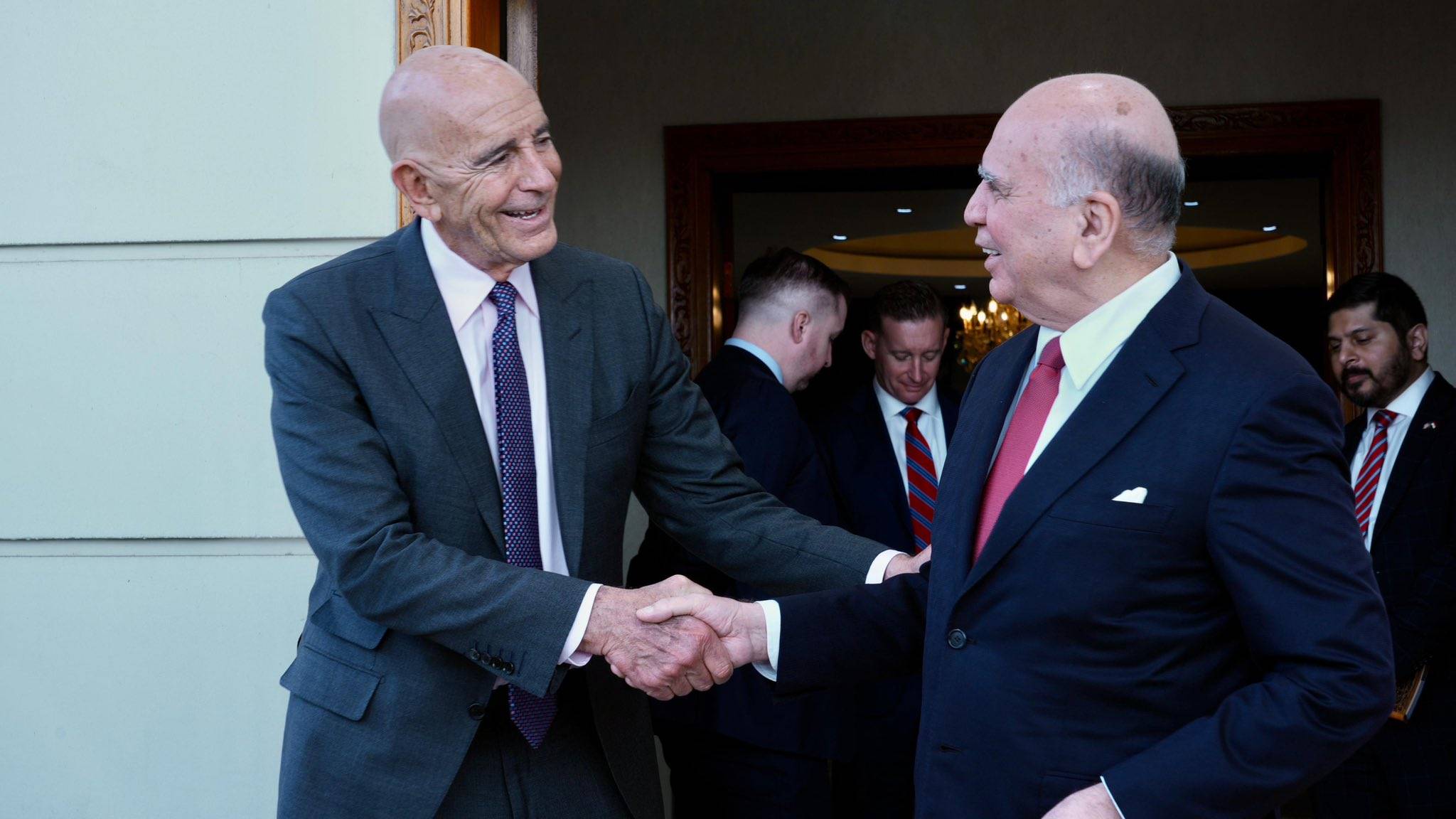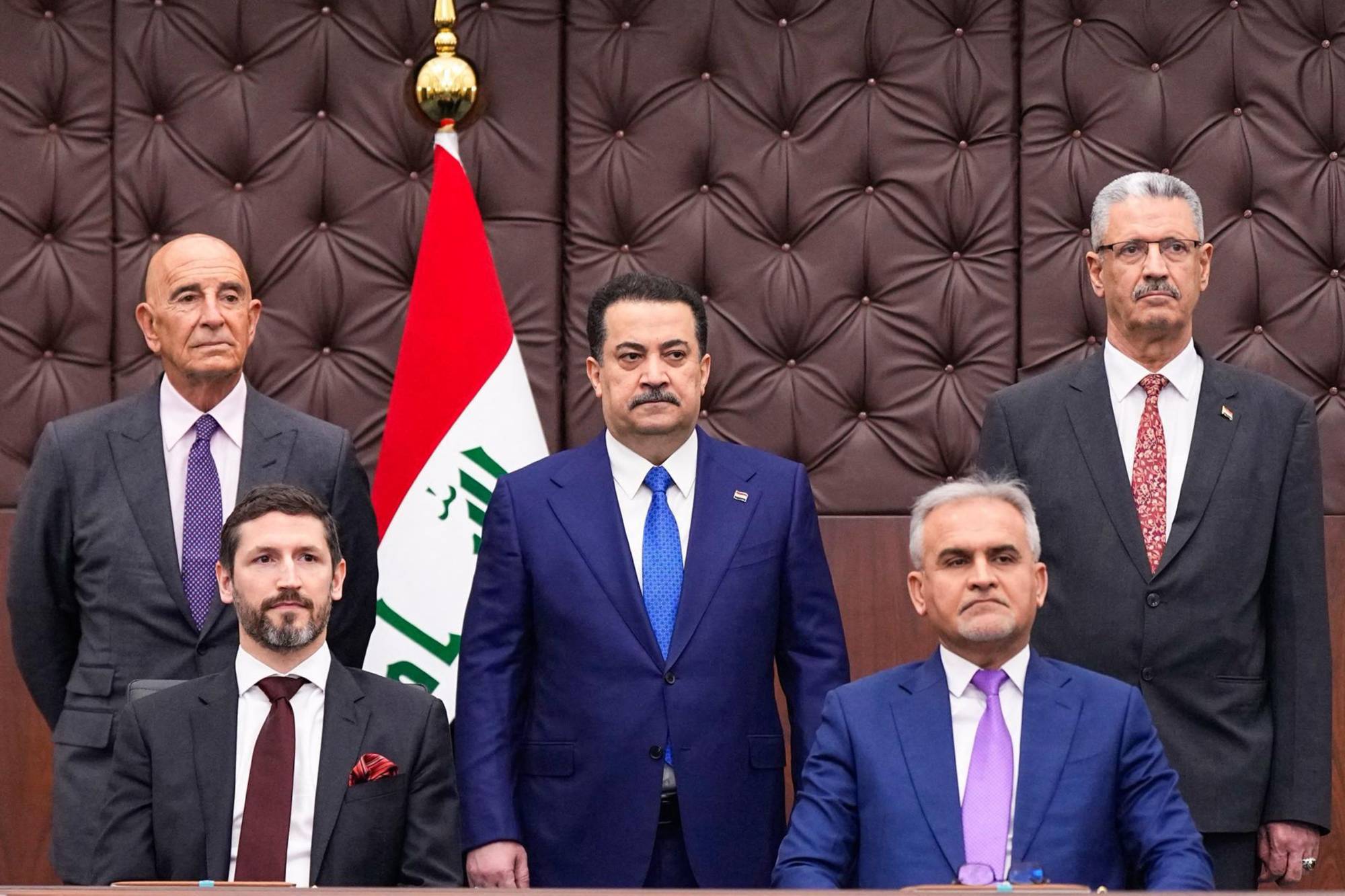The Middle East was reeling Sunday from deadly violence with Israel bombing Gaza, Lebanon and Yemen in quick succession in response to attacks from Iran-backed militant groups.
Despite Washington's top diplomat asserting a deal is near the "goal line" to end more than nine months of devastating war between Israel and Gaza rulers Hamas, the Israeli military said it intercepted a missile fired from Yemen, as it pressed on with its offensive in the besieged Palestinian territory, Agence France Presse reported.
Dozens have been killed since Saturday across the Gaza Strip, the civil defense agency said, including in strikes on homes in the central Nuseirat and Bureij areas and displaced people near southern Khan Yunis.
Residents said a major operation was underway in the district of Rafah in the south, reporting heavy artillery and clashes.
The deadly strikes in Gaza came hours after Hezbollah and its ally Hamas said they fired at Israeli positions from south Lebanon, while Yemen's Houthi group vowed to respond to Israeli warplanes hitting a key port.
The fire left raging by the strikes on Hodeida port "is seen across the Middle East and the significance is clear," Israeli Defense Minister Yoav Gallant said.
Detailing the first strikes claimed by Israel in Yemen, Gallant warned of further operations if the Houthis "dare to attack us" after a Houthi drone strike killed one in Tel Aviv on Friday.
In Hodeida three people were killed and 87 wounded, health officials said in a statement carried by Houthi media.
Netanyahu travels to Washington
The trio of militant groups has vowed to keep up attacks on Israel until a truce ends the violence in Gaza, which lies in ruins, with most residents forced to flee their homes.
The Gaza war was triggered by Hamas's October 7 attack on southern Israel, which resulted in the deaths of 1,195 people, mostly civilians, according to an AFP tally based on Israeli figures.
The militants also seized 251 hostages, 116 of whom are still in Gaza, including 42 the Israeli military says are dead.
Israel's military retaliation to wipe out Hamas has killed at least 38,919 people, also mostly civilians, according to data from the health ministry in Hamas-ruled Gaza.
The war has also unleashed hunger and health crises in Gaza, with Israel and the United Nations trading blame for vital aid supplies failing to reach those in need.
After the detection of poliovirus in Gaza sewage, though no individual cases, the World Health Organization said there were "monumental" constraints to mounting a timely response.
WHO spokesman Christian Lindmeier said Friday the agency believes many more diseases are "spreading out of control" inside Gaza.
The premier is due to address US lawmakers Wednesday in Washington, where he will be under pressure to reach a ceasefire with Hamas.
US Secretary of State Antony Blinken said Friday a truce was within reach.
"I believe we're... driving toward the goal line in getting an agreement that would produce a ceasefire, get the hostages home, and put us on a better track to trying to build lasting peace and stability," he said.
Israel Strikes Gaza, Yemen, Lebanon Foes after Attacks

Smoke rises from a building hit by an Israeli strike in Nuseirat in the central Gaza Strip on July 20, 2024, amid the ongoing conflict between Israel and the Palestinian group Hamas. (Photo by Eyad BABA / AFP)

Israel Strikes Gaza, Yemen, Lebanon Foes after Attacks

Smoke rises from a building hit by an Israeli strike in Nuseirat in the central Gaza Strip on July 20, 2024, amid the ongoing conflict between Israel and the Palestinian group Hamas. (Photo by Eyad BABA / AFP)
لم تشترك بعد
انشئ حساباً خاصاً بك لتحصل على أخبار مخصصة لك ولتتمتع بخاصية حفظ المقالات وتتلقى نشراتنا البريدية المتنوعة






